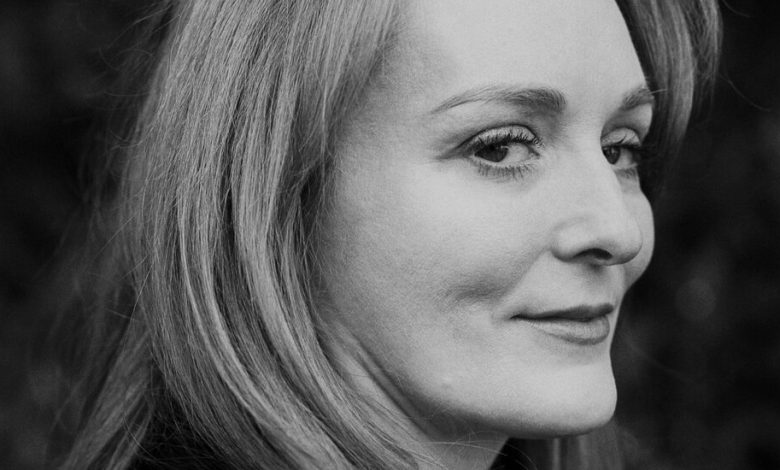Antonia Bennett Used to Sing With Tony. Now She’s Carrying On Solo.

Antonia Bennett’s childhood had some unique charms. There were the parties, where the likes of Rosemary Clooney, Ella Fitzgerald and Mel Tormé would gather around the piano and sing. There were the times Bennett’s father, Tony, took her to work, beginning when she was about 5, and gave her an early taste of the spotlight.
“My dad would just bring me up onstage, and we would sing together,” Bennett recalled in a recent interview. “I guess it started with ‘The Hokey Pokey’ and ‘Santa Claus Is Coming to Town,’ and then I graduated to ‘Puttin’ on the Ritz,’ and we just kept going from there, you know?”
Bennett, 49, is the younger of the crooner’s two daughters by the second of his three wives, the actress Sandra Grant Bennett. Over the years, she too has sung professionally, releasing a 2014 album, “Embrace Me,” and an earlier EP that mixed traditional pop standards with a cover of Pat Benatar’s “Love Is a Battlefield.” For the first time since her father’s death in July at 96, she is preparing to take the New York stage — and start her career anew.
“It was such a privilege to be able to get to know my dad in my adult life, and to spend so much time traveling and performing with him,” said Bennett, who regularly opened for her father and was his featured duet partner at major venues and festivals until his retirement from the stage. “And I learned so much from him.”
On Thursday, she will play two shows at Jazz at Lincoln Center’s Dizzy’s Club. Earlier this month she released a new single, “Right on Time,” a breezy slice of jazz-tinged pop she co-wrote with her frequent collaborator Cliff Goldmacher, a Nashville veteran who has teamed with artists including Keb’ Mo’ and Kesha.
The tune is one of several originals that will be included on a forthcoming album she has produced with the noted jazz pianist and arranger Christian Jacob, with vocals produced by Mark Renk. There are also covers, of course, of standards such as “Ain’t Misbehavin’” and “Exactly Like You,” set to elegant, playful jazz arrangements that flaunt her influences, which extend to pop bards like Randy Newman.
“I pull from everything,” Bennett said in a video interview from her Los Angeles home, showing off a lush mane of red hair and a girlish smile that matches her lissome, tangy singing voice, which The Times critic Stephen Holden once described as having “echoes of Billie Holiday and Rickie Lee Jones (with a hint of Betty Boop).” Bennett studied at Berklee College of Music and also plays piano, although “not in public,” she noted. She said the treatments on the new album are jazz “because that’s where I come from.”
At Dizzy’s, Bennett will appear with the pianist Todd Hunter’s trio, featuring the bassist Ian Martin and the drummer Chris Wabich. “She knows what she’s looking for, but she’s also very open to collaboration,” Hunter said in an interview. “And she’s got a lot of great stories — though I don’t know if there are any I could actually repeat.”
Jason Olaine, vice president of programming at Jazz at Lincoln Center, which will celebrate Tony Bennett in a concert gala next April, has known Antonia for years, and praised her “fresh, direct” vocal approach. “It feels very honest, without a lot of ornamentation,” he said. “I’ve seen her on the East Coast with other groups, and it will be nice to have her in a small group setting, with people she’s intimately familiar with.”
While her album doesn’t have a firm release date, Bennett has more live concerts planned for February in Chicago. “I don’t really have a timeline, because I look at my dad and I think, he just kept reinventing himself and going on and on,” she said.
Bennett also credits her light touch musically in part to her father’s influence: “He would always give me this great advice, which is to sing the way you speak.” She added, “I think the most important thing I absorbed from my dad was how much he loved what he did — how much he got from the audience, and how much he gave in return.”
After her father learned he had Alzheimer’s disease, his work became therapeutic, she said. “I think just being in that routine of singing and performing was important for him. Sometimes he would repeat a song, but nobody ever cared — he always sang like it like he was singing it for the first time. It was beautiful to watch him do something he really loved. Even after he stopped singing in concert halls, he would get together with his piano player and go through songs.”
Bennett is already carrying on a family tradition, inviting her own daughter, Maya, 7, onstage during performances. “I’ll let her sing the parts she knows, and if I think she doesn’t know a part I’ll just sneak the words in,” she said.
For Bennett, something more than maternal pride is at work in such moments. “I feel very confident now,” she said. “I feel like this is my time; I’ve been honing my craft for many years, and I feel whatever I put out now will be a good reflection of who I am — like a page in a book that I can keep building on. I’d really like to be able to do this forever and ever.”
